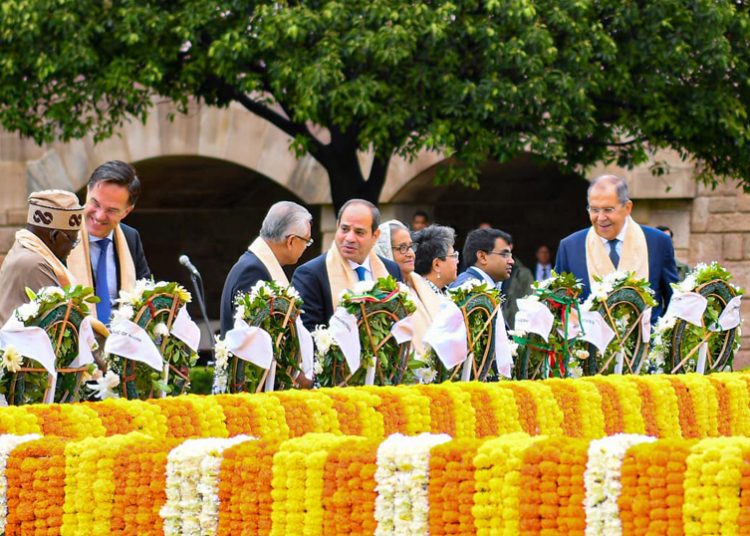Egypt’s President Abdel Fattah El Sisi returned home from New Delhi last night after taking part in the G20 summit and addressing the event’s third and closing session on Sunday. On the sidelines of the summit, President Sisi conferred with some leaders and key international figures who attended the event and spoke on Saturday to an Afro-European mini summit.
In his address to G20 summit’s closing session on Sunday, President Sisi stressed the need to bridge the huge technological gap between countries to avoid technological progress turning into an additional driver of inequality.
The president said he had eagerly followed statements by other leaders on dealing with global crises, and the need for a political will to take the measures deemed necessary for guaranteeing a better future for humanity.
This reference to the future, President Sisi added, encourages him to highlight the wide hopes pinned on technological transformation, in order to boost productivity and provide new opportunities for growth and investment.
To ensure a better future for humanity at large, work must be done to bridge the huge technological gap between countries, so that technological progress might not turn into an additional driver of inequality, President Sisi added.
President Sisi then referred to the fears that have been rising over the past years regarding the impact of mechanisation and artificial intelligence on the future of employment, with potentially negative social and economic effects doubling in developing countries that rely on labour-intensive industries; thereby possibly threatening to wither away much of the efforts that have been exerted to achieve development.
“Let’s agree that going ahead towards the future and seeking solutions based on multilateral co-operation require speeding up efforts to counter the existing challenges before they take hold and lead to crises that will be hard to resolve,” President Sisi told the G20 summit participants.
He pointed in this context to the urgent need to address the dilemma of developing countries’ debts, which have acquired serious proportions because of the burden of soaring debt servicing, not only in low-income countries, but also in middle-income ones.
The issue, President Sisi added, requires rapid decisions to prevent the outbreak of a global debt crisis.
In addition, the commitment to the sustainable development agenda and the goals of the 2015 Paris Agreement on climate change require securing the necessary funding, as well as developing the international finance system and practices by multilateral development banks.
President Sisi stressed that these requirements can be met through maximising the lending capacity of these banks, in particular soft financing and guaranteeing that climate funding will not come at the expense development finance.
Referring to the UN Climate Change Conference (COP 27), which Egypt hosted and chaired last November, President Sisi stressed the importance of the counties’ honouring their financial pledges, in addition to the commitment to technology transfer.






Discussion about this post